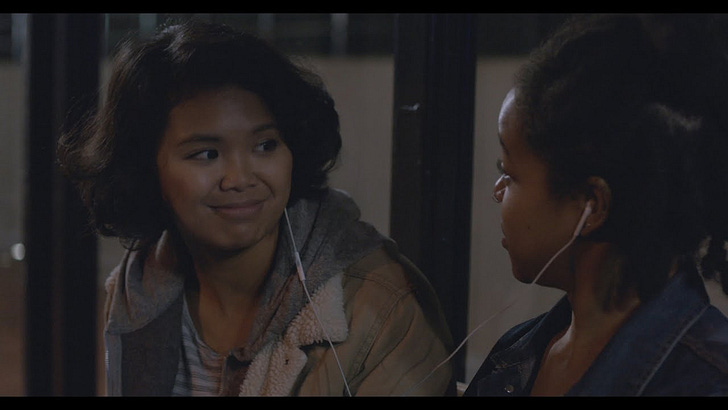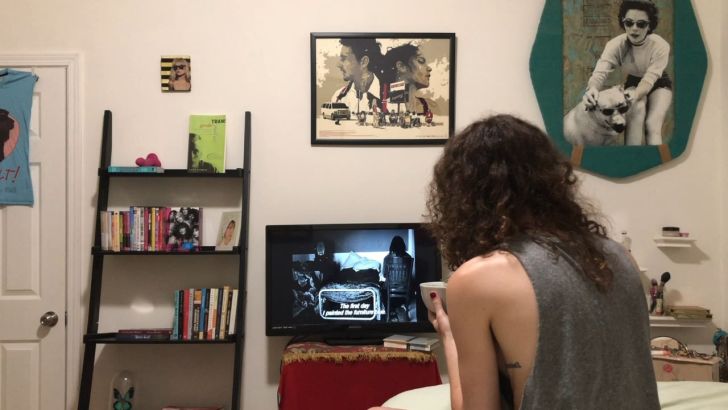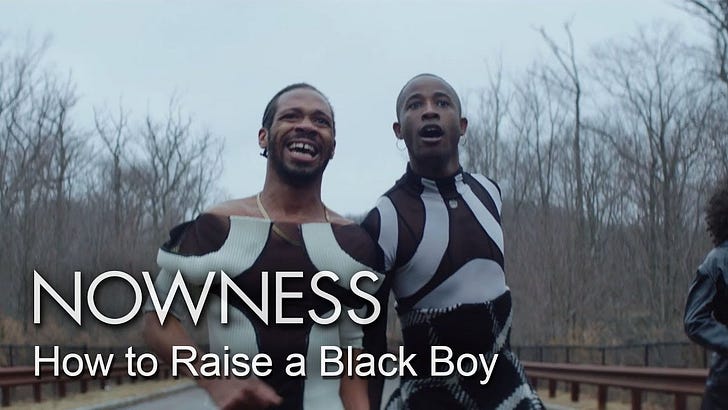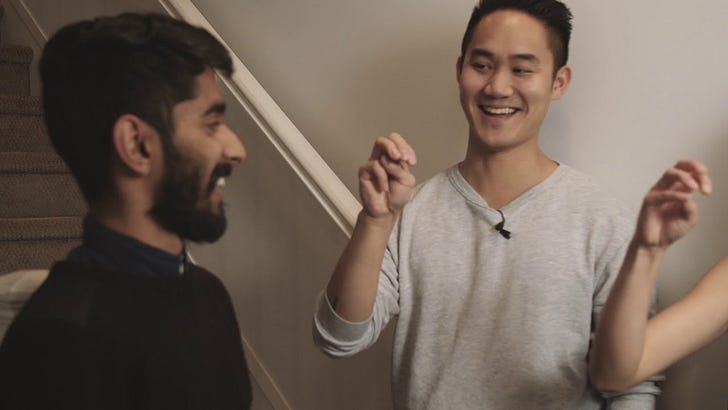Four queer films come out to their parents
Most queer people discover, at some point in their journey, that “coming out” is not as simple as we have been led to believe – particularly because we never simply come out once. Coming out ends up being a repeated part of our lives, especially as we meet new people or join new spaces, and, importantly, as we learn different ways to name ourselves, our identities, and our desires.
For many queer folks, though, the hardest coming out is with the members of our own families. After all, our families are often the ones who have known us the longest, who have a preconceived notion – and, often, expectations – that may be interrupted by learning that we are different than they had though. Culture plays a part as well, including for immigrants or families in diaspora, whose coming out might look different than the predominantly western, white coming out narratives we often see.
This week’s films portray different dimensions of coming out to parents – in fact, to mothers, though that was a coincidental pattern on my part when choosing the films! Some are more fraught than others, but I have hope for all the protagonists that they’ll come out on the other side being able to keep the love between them, their partners, and their families.
“Mom, I have something to tell you.”
Dear Mom, directed by Yu Malar Myint, is a short, spare gem of a film. In a visual letter, the main character (possibly Yu Malar Myint herself?) tells her mother about how she has fallen in love with a woman, and documents her own journey of creating this film. The film doesn’t do anything fancy to convince us of the protagonist’s love for both her partner and her mother; we see it clearly through glimpses into their relationship and the emotion in the protagonist’s voice as she describes how happy she is and how she wants her mother to be happy for her as well.
Dear Mom was made as part of the Rainbow Reels Documentary Film Making Workshop at the &PROUD Yangon LGBT Film Festival in Burma. I have not been able to find out much more information about the production, which is why I’m not sure if it is autobiographical or not! Regardless, every word of it feels true to me in the ways that matter.
Dear Mom
“I’m Robyn, Mom. I’m your daughter.”
Like Mother, Like Daughter, written by Kady Le and Tina Ngo, and directed by Kady Le, introduces us to Robyn (Tina Ngo), a Vietnamese-American trans girl who is getting ready for a Lunar New Year celebration at her house hosted by her mother (Nguyen Stanton). Robyn gets excited trying on one of her mother’s dresses, but she does not expect the reaction she receives when her mother catches her.
Like Mother, Like Daughter uses a conceit that I don’t love in order to heighten dramatic tension, but ultimately I still find it a sweet, lovely film about parents learning to accept their children as they are. I’m further encouraged by the fact that star Tina Ngo co-wrote the film, though I am unable to find any statements by her about the process. In her director’s statement, Kady Le says, “Like my main character, Robyn, I am also a queer woman with a very complicated relationship with my immigrant mother. Though I am not transgender, I can relate to what it’s like to be marginalized. I wanted to portray an authentic story between a trans woman and her immigrant mother.”
Like Mother, Like Daughter
“Dear Lord, give us the strength to clear a path in my house. A path to you, Lord, but also a path from the door to the bathroom.”
Salamagan, written by Alyssa Lerner and directed by Elisa Oh, is about Ana, a Filipino-American woman whose religious Catholic mother Marline (Olga Natividad) and Auntie Belicia (Joi Orbe Brown) are praying for two things: for Belicia to not get evicted for hoarding too many things in her house, and for Ana to find a husband. Meanwhile, Ana’s girlfriend Gabi (Lys Perez) wants them to meet each other’s families, throwing Ana into turmoil as she and her mother help Belicia get rid of junk before a home inspector is due to arrive.
All of the actors in this short film are fabulous, but I was especially struck by Olga Natividad’s portrayal of Marline as a steely, devout woman whose care for and protectiveness towards her daughter comes out as cruelty. It’s a fine line to balance, but it’s one that feel will ring true for many queer kids, especially kids of immigrants, whose parents have a specific idea of how their offsprings’ lives are supposed to go to be successful and happy. Marline’s words are devastating to Ana, but the comedic ending of this short says to me that the creators have hope for Ana and Marline’s relationship, even as Ana pushes back on her mother’s edicts and rules.
Salamagan
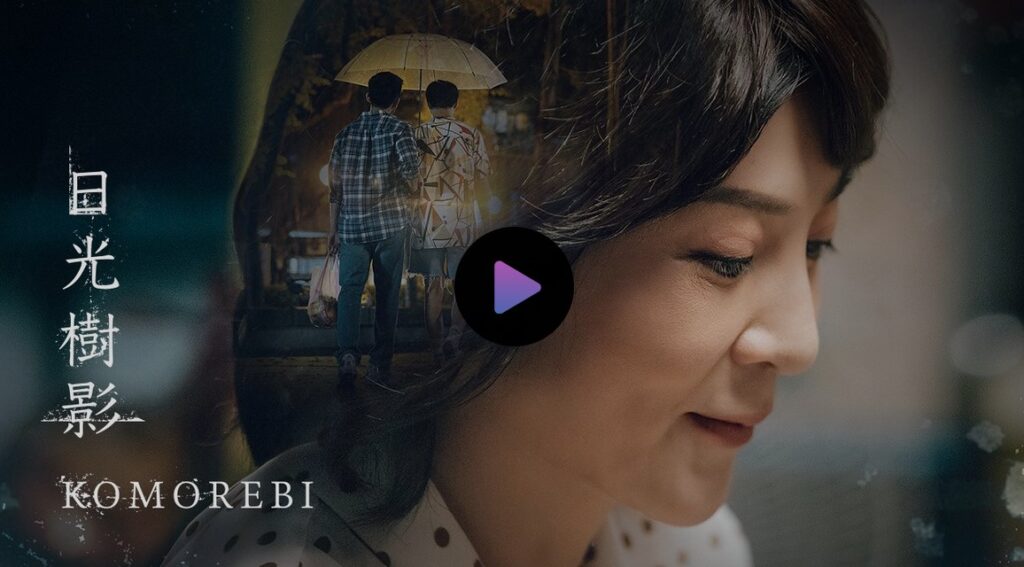
“Me and this boy were like that. We were comfortable with each other. Not too hot, just warm.”
日光樹影 | Komorebi, written and directed by Huang Ting-Chun, tells the story of Jhe-Ming (Adam Lin), a gay man who is married to his lifelong best friend A-Jheng (Huang Guan Zhi). Jhe-Ming has not yet found a way to tell his mother (Lotus Wang) about his marriage, even though she knows and loves A-Jheng. When Jhe-Ming comes home for his mother’s birthday, he wonders if now is the right time, especially when he knows that his mother worries about him being alone.
Every one of Jhe-Ming’s relationships in this film feels natural and real – with A-Jheng, with his mother, with his sisters (Belle Hsin and Chang Ning) and even with his brother-in-law (Li Zi Cheng). Similarly, Jhe-Ming’s journey to opening up to his mother proceeds organically, and her reaction is just as understated and loving as their relationship deserves.
日光樹影 | Komorebi


